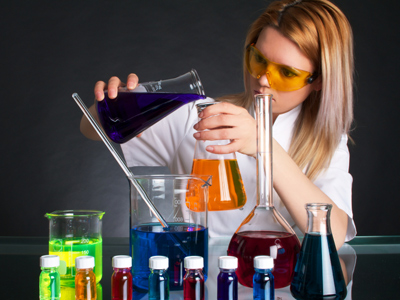
Unit 4 - Risk Assessment
Each time that your teacher sets you an experiment to do, they will have carried out a risk assessment in order to reduce the chances of any accidents occurring. In this GCSE Biology quiz we look at how to carry out a risk assessment and some of the possible dangers that might be encountered in a laboratory.
During a risk assessment, any hazards and methods for avoiding accidents are identified. But it doesn't stop there - just in case there is an accident, there will be a plan of what to do. In investigations, things are different. You need to identify hazards for yourself, find ways to reduce the chances of an accident occurring and say what you should do or have ready if a hazard does become an accident.
Ready for more?
not all...
quizzers. Try to win a coveted spot on our Hall of Fame Page.







